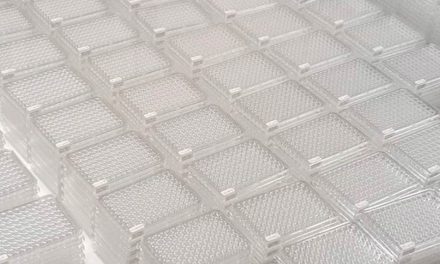
New project to measure Alzheimer’s and Parkinson’s via the ear
A new project in Denmark is seeking to develop a device that could measure Alzheimer’s and Parkinson’s via the ear
Serious brain diseases such as Alzheimer’s and Parkinson’s are usually diagnosed too late for optimal treatment.
A new project will develop and test a home healthcare technology that could have a major impact on prevention and treatment of both diseases.
Rigshospitalet and Aarhus University have joined forces with the Danish health technology company, T&W Engineering, and they have just received DKK15m (~£1.8m) in funding from Innovation Fund Denmark for their potentially groundbreaking project for people with serious brain diseases.
The project will develop and test a so-called ‘ear-EEG’ device that is very similar to a pair of in-ear headphones.
This specially developed measuring device will be tested on patient groups both with and without Parkinson’s and Alzheimer’s.
The aim is to examine whether it is possible to use the technology to screen patients for the two serious brain diseases.
The ear-EEG technology reads the brain’s electrical activity and gently maps sleep patterns. Recent research shows that a person’s sleep patterns can indicate early signs of Alzheimer’s and Parkinson’s disease.
Professor Preben Kidmose, who is the head of the Center for Ear-EEG at Aarhus University, said: “Alzheimer’s and Parkinson’s are diseases that creep up over many years.
“They’re usually only discovered when you start to develop cognitive and memory-related problems, sleep disturbances or disturbances in the musculoskeletal system, for example.
“Diagnosis is generally so late that the only treatment option is to treat the symptoms.
“In the project, we’re going to try to identify signs of the two diseases 10-15 years before the first problems begin to occur, and if we can, far better treatment options will be possible.”
Serious brain diseases are extremely burdensome for patients and their relatives. They are also a growing financial burden for the healthcare sector – not just in Denmark, but internationally.
According to the Danish Dementia Research Centre, around 12,000 have a Parkinson’s diagnosis in Denmark, while more than 100,000 are living with dementia.
The Alzheimer’s Association has estimated that just 40% of all Danish women with dementia have actually been diagnosed, while the figure for Danish men is around 60%.
Ear-EGG – the sleep monitoring of the future?
The small device is placed in the ear to measure electrical activity in the brain. The method measures the extremely small voltage changes on the surface of the skin caused by electrical activity in the brain’s neurons, and it is a far more gentle and less intrusive technology than traditional sleep measurements.
The PANDA-project device is also equipped with an oximeter to measure oxygen in the blood, a thermometer, and a microphone that can listen to breathing and heartbeat, much like a stethoscope.
Professor Poul Jørgen Jennum, Doctor of Medical Science and head of the Danish Centre Sleep Medicine at Rigshospitalet, said: “We hope that we’ll be able to use the ear-EEG to replace in part the existing and somewhat more troublesome sleep monitoring.
“We’ll try to make the technology so simple that it can be used at home and over a longer period of time. Ideally, we hope it will be possible to measure your own sleep over a few days, weeks, or even months every year.
“The aim is to identify changes that may be early signs of serious brain diseases such as Alzheimer’s and Parkinson’s disease, and to diagnose patients more easily and earlier than today.
“This would be a great advantage.”
He added: “Another advantage is that we can examine patients in their everyday lives, and monitor changes in sleep patterns and the effect of treatments.
“This makes the potential ear-EEG technology a good screening tool that can be used at home – just like a blood pressure meter.”
Effective patient care
The opportunity to develop home healthcare technology is exactly what attracts T&W Engineering. The company’s specialist area is portable health technologies that provide a very accurate picture of patients’ health and provide more effective patient care, preferably at home.
Chief executive officer Richard Tøpholm explained: “We want to support the vision of a patient-centric and data-driven healthcare system, and we aim to have technological solutions in patients’ homes so that they don’t have to go to hospitals.
“Dementia is a major problem that we’ve been struggling with for a long time without getting very far, and the methods currently available are not scalable and not suitable for repeated measurements to trace or monitor disease progression.
“If we can develop solutions that involve patients in their own homes, we can begin to build up much better health profiles, so that we can assign patients for the more intrusive examinations and final diagnosis far earlier.
“I very much hope that we can help make a difference in this area, which means so much for so many people.”
Images : Ear-EEG is a gentle technology that can measure the electrical activity of the brain and map our sleep patterns. Research shows that early signs of Alzheimer’s and Parkinson’s can be found in a person’s sleep patterns. © Aarhus University/ Sebastian Krog Knudsen.















